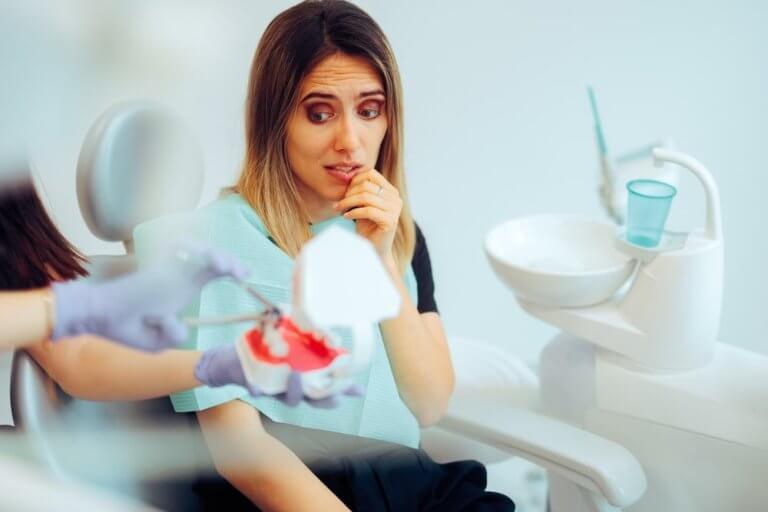Healthy teeth will add years to your life and life to your years.
I met a patient last week who asked if I would remove all of his teeth. To which I answered, “Yes, I can.”
However, the bigger question is, should I remove all your teeth for you?
Losing a tooth can be quite traumatic from a psychological standpoint. For some, tooth extraction solves a problem, nuisance, or pain. All of these emotions intensify when we consider removing all of our teeth. Not only does our appearance change, but the way we eat and speak is affected greatly.
According to the American Dental Association, tooth extraction should only be considered when other treatments are not viable. Although this patient also asked me about dental implants, for several reasons, their utilization was not a good choice for him.
When Should You Remove All Your Teeth?
The patient had multiple teeth that were diseased and damaged. As discussed last week, the initial step toward restoring oral function is to address and remove all dental disease. When we do this, each tooth should be evaluated to determine if keeping it is better for the patient than removing it.
The American Academy of Periodontology emphasizes that periodontal disease is a leading cause of tooth loss, making early intervention crucial.
Sometimes, a tooth is in good shape but in a position that does nothing to help the patient smile or chew. Unfortunately, we recommend that such a tooth not remain in the mouth because, at best, it doesn’t help, and at worst, it compromises the outcome.
Upper vs. Lower Teeth: Important Considerations for Tooth Removal
Whether a tooth is an upper or lower is also a concern, and this location will determine whether it stays or goes.
When all the upper teeth are removed and a complete denture is made, there is a chance that it will be stable in the mouth. This stability is due to the back extension of the denture. The roof of your mouth is hard, and it extends backwards toward the throat, where it becomes soft. This juncture of the hard and soft areas is crucial to the retention of an upper denture.
Upper dentures are made a little thicker at this meeting of the hard and soft areas, and the result is suction of the upper denture in the mouth.
Getting the end of the denture just right can make the difference between wearing dental adhesive or not.
The National Institute of Dental and Craniofacial Research notes that proper denture fit is essential for maintaining oral health and nutrition. Given the potential for a stable full upper denture, we recommend removing all upper teeth where a long-term solution is unlikely if they remain in the mouth.
Why Keeping Lower Teeth is Often Better Than to Remove All Your Teeth
The lower jaw presents its own challenges when considering whether to remove all your teeth.
There is no junction of a hard and soft area to create a suction or other form of stability. This lack of anatomy that lends itself to creating a confident fit on a lower denture steers me to find teeth to keep in the mouth.
In the lower jaw with as little as one tooth on each side of the mouth, I can make a partial, not a full denture, and anchor this into place for patient comfort and chewing efficiency. The more teeth I can keep and eliminate disease from, the better the result.
The Final Decision: Tooth Preservation Over Complete Removal
I followed these guidelines and advised against removing all of his teeth. Rather, I suggested we remove the upper unhealthy teeth but keep as many teeth as feasible in the lower jaw and return them to a state of health. Research from the Journal of the American Dental Association consistently shows that preserving natural teeth whenever possible leads to better long-term oral health outcomes. Teeth are crucial for oral health, and keeping them in your mouth can create quantity and quality to your years.
If you think that all is lost when it comes to your teeth and you’re wondering “should I remove all my teeth,” please call us at 440.951.7856. Let’s plan together, and as always, I look forward to meeting you.
Jeffrey Gross, DDS, FAGD, is an Ohio-licensed general dentist and is on the staff of Case Western Reserve School of Dental Medicine.

